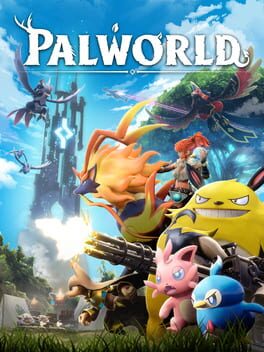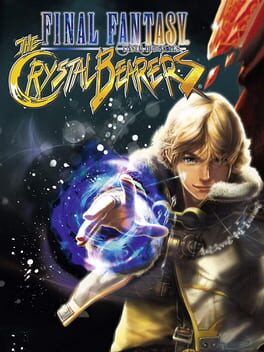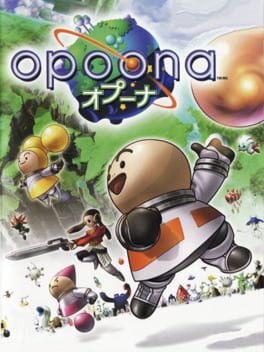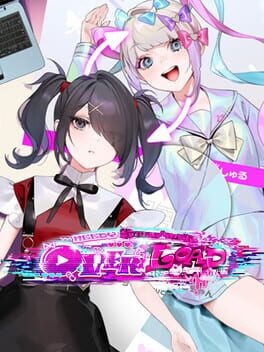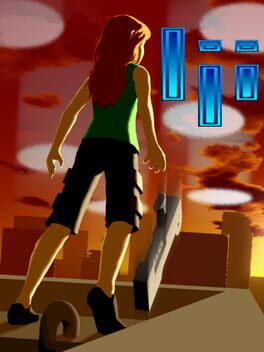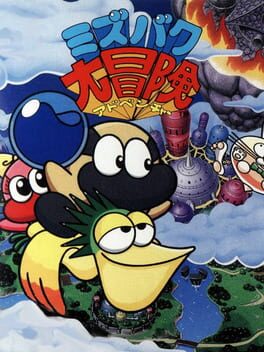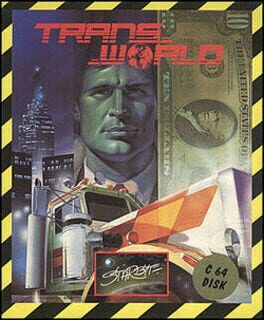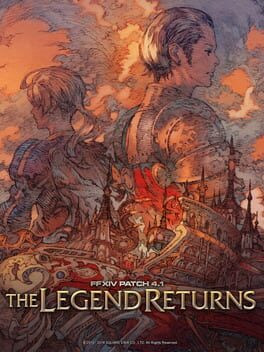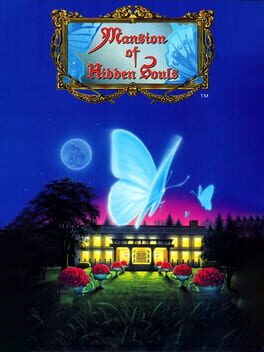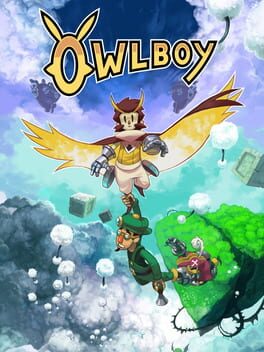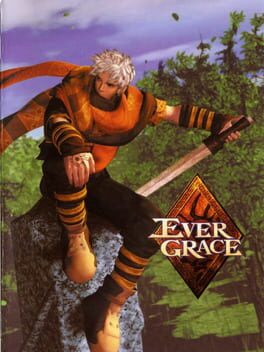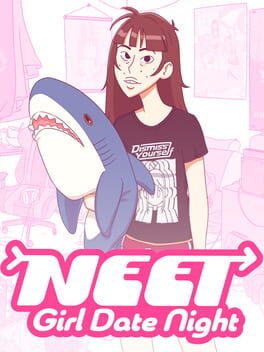MeiCheesecake
27 Reviews liked by MeiCheesecake
Omori
2020
Palworld
2024
Review
I gave it a real shot, for 8 hours!
You can read my notes and thoughts here : https://twitter.com/han_tani2/status/1735187901296836666
Or read an essay in which I discuss TotK https://melodicambient.substack.com/p/why-ocarina-of-time-cant-be-recreated
The short version is: the game has its nice charming moments, I actually like the idea of janky physics dungeons and riding around on stuff. NPC designs are nice and some of the side quests looked interesting. But I hattteee the crafting stuff, it kind of ends up padding almost everything in the game out. There's also so much distraction, it feels like YouTube recommendations or TikTok...
Shitpost review
Zelda but if Miyamoto wasn't inspired by wandering the countryside as a kid but opening up Genshin enough times to get the 30 day login bonus
I gave it a real shot, for 8 hours!
You can read my notes and thoughts here : https://twitter.com/han_tani2/status/1735187901296836666
Or read an essay in which I discuss TotK https://melodicambient.substack.com/p/why-ocarina-of-time-cant-be-recreated
The short version is: the game has its nice charming moments, I actually like the idea of janky physics dungeons and riding around on stuff. NPC designs are nice and some of the side quests looked interesting. But I hattteee the crafting stuff, it kind of ends up padding almost everything in the game out. There's also so much distraction, it feels like YouTube recommendations or TikTok...
Shitpost review
Zelda but if Miyamoto wasn't inspired by wandering the countryside as a kid but opening up Genshin enough times to get the 30 day login bonus
I think this game was unforcantely forgotten for the final fantasy series. It's a nice action adventure game if you are not looking for anything intaully in your face RPG like main like FF or a multiplayer centric game like Chronicles.
While I havent played anything else in this series, I believe this game is a cool standout game that I lump with the experimental side series like Last Story. It was a pretty fun time to play with the physics, making everyone or the enemys explode.
Plus this is one of the few times quick time events didn't bug me. Its strange at first how you can skip leveling or getting items, but I like the freedom it gives for people to play the game in different ways their one time or for multiple runs. One of the only complants I'll give is I was you could have trigger Maisma yourself at some point to make getting health easier.
Other than that it had an exciting story reminding me of some older FF games while making something new!! Strangely this was one of the finals fantasy games that didn't stretch on forever, which was refreshing. I still love that in FF though.
I want nothing to do with Belle though, she makes me angry. Although it balanced out by another awesome Non-binary character with Amidatelion, they just came out of no where as a fun character to see on screen be methodical and bring a different pace to half way through the game. I felt every main character got their moment to do something.
Also as a last thing the game looks pretty for its time & had some of the best animation I've seen on Wii! It's pretty beautiful how the game gives you subtle expressions without directly speaking their mind.
I really loved a good bit of this game.
If you want to play something small, please give this a try, it was fun streaming!~ c:
While I havent played anything else in this series, I believe this game is a cool standout game that I lump with the experimental side series like Last Story. It was a pretty fun time to play with the physics, making everyone or the enemys explode.
Plus this is one of the few times quick time events didn't bug me. Its strange at first how you can skip leveling or getting items, but I like the freedom it gives for people to play the game in different ways their one time or for multiple runs. One of the only complants I'll give is I was you could have trigger Maisma yourself at some point to make getting health easier.
Other than that it had an exciting story reminding me of some older FF games while making something new!! Strangely this was one of the finals fantasy games that didn't stretch on forever, which was refreshing. I still love that in FF though.
I want nothing to do with Belle though, she makes me angry. Although it balanced out by another awesome Non-binary character with Amidatelion, they just came out of no where as a fun character to see on screen be methodical and bring a different pace to half way through the game. I felt every main character got their moment to do something.
Also as a last thing the game looks pretty for its time & had some of the best animation I've seen on Wii! It's pretty beautiful how the game gives you subtle expressions without directly speaking their mind.
I really loved a good bit of this game.
If you want to play something small, please give this a try, it was fun streaming!~ c:
Opoona
2007
Mechanically, this game probably deserves a 3 or 3.5. But I can't help but bump it up because of how inventive its world is, how utterly AMAZING its soundtrack is, and how much I keep thinking about this game, even years after having played it.
I came off of this game feeling a little frustrated, and with its shortcomings at the forefront of my mind. "It's mediocre". But I kept thinking about it. I kept thinking about its art direction; the mesh of sleek, hypermodern glass and iron structures and nature. That is really what stuck the most with me. The closest I think a game gets to this is Phantasy Star Online, but Opoona does it better, cleaner, classier. I want so badly for more games to look like this.
As an immigrant, the subtext of bureaucracy in this game is not something I expected, but wow does it add to the experience. All the requisites and red tape you have to go through for just Existing in a planet that you're not a citizen of - it hit close to home. It's definitely a subjective point, but I heavily resonated with it and made me connect with Opoona's journey that much more.
I was also impressed with the town design, and how much life every single location seemed to have. It felt lived-in, it made sense that these locations would develop the way that they did. I love that there's a town known for its museums and high-class shops. I love that there's a business center with two competing technology companies, all of it UNDERWATER, and named "Intelligent Sea". What an amazing name.
The soundtrack is impeccable, probably the best on the system. Hell, probably the best in JRPGs period. It perfectly accentuates the environments, though I will say that the battle theme is terrible. It gets replaced with a much better song later, but only while on a specific mission. I wish that better song played all the time instead.
I think my favorite aspect of this game is how much it respects art. Whoever was in charge of design for this specific aspect clearly had a lot of love for the art world and was fully immersed in it. The game has museums, art exhibits, installations, paintings; pretty much everything that you can expect from the world's finest museums. And these pieces are scattered across the different locales, in different town museums, out in the wild where a rogue artist has set up a small studio and left an art exhibit behind. My favorite of these is the many empty art frames you encounter in your journey. They are introduced with very little fanfare. You just see these random, intricate, gold-leaf frames around the world, with a small inscription telling you the numbering, and the artist responsible. The idea of the installation is that whatever you are seeing through the frame is the art. The game never gives you a special camera angle, never zooms in on an intended perspective; they're all just there, capturing whatever it is the game's camera has put inside it, and it always works. It feels so real.
Opoona, to me, is a game about being othered. It's about beureaucracy. It's about art. Opoona contains multitudes, and despite its very glaring flaws, I can't help but love it. It's the closest I'll get to taking an intergalactic vacation.
I came off of this game feeling a little frustrated, and with its shortcomings at the forefront of my mind. "It's mediocre". But I kept thinking about it. I kept thinking about its art direction; the mesh of sleek, hypermodern glass and iron structures and nature. That is really what stuck the most with me. The closest I think a game gets to this is Phantasy Star Online, but Opoona does it better, cleaner, classier. I want so badly for more games to look like this.
As an immigrant, the subtext of bureaucracy in this game is not something I expected, but wow does it add to the experience. All the requisites and red tape you have to go through for just Existing in a planet that you're not a citizen of - it hit close to home. It's definitely a subjective point, but I heavily resonated with it and made me connect with Opoona's journey that much more.
I was also impressed with the town design, and how much life every single location seemed to have. It felt lived-in, it made sense that these locations would develop the way that they did. I love that there's a town known for its museums and high-class shops. I love that there's a business center with two competing technology companies, all of it UNDERWATER, and named "Intelligent Sea". What an amazing name.
The soundtrack is impeccable, probably the best on the system. Hell, probably the best in JRPGs period. It perfectly accentuates the environments, though I will say that the battle theme is terrible. It gets replaced with a much better song later, but only while on a specific mission. I wish that better song played all the time instead.
I think my favorite aspect of this game is how much it respects art. Whoever was in charge of design for this specific aspect clearly had a lot of love for the art world and was fully immersed in it. The game has museums, art exhibits, installations, paintings; pretty much everything that you can expect from the world's finest museums. And these pieces are scattered across the different locales, in different town museums, out in the wild where a rogue artist has set up a small studio and left an art exhibit behind. My favorite of these is the many empty art frames you encounter in your journey. They are introduced with very little fanfare. You just see these random, intricate, gold-leaf frames around the world, with a small inscription telling you the numbering, and the artist responsible. The idea of the installation is that whatever you are seeing through the frame is the art. The game never gives you a special camera angle, never zooms in on an intended perspective; they're all just there, capturing whatever it is the game's camera has put inside it, and it always works. It feels so real.
Opoona, to me, is a game about being othered. It's about beureaucracy. It's about art. Opoona contains multitudes, and despite its very glaring flaws, I can't help but love it. It's the closest I'll get to taking an intergalactic vacation.
Vampire Survivors
2021
All of the let's play narration for these random-build-focused slot-machine-action-games is like 'ohh after your 50th run you'll have enough gopher coins to now unlock the Zuckerberg's Icon so now when you play Billy Boy and choose the Steven Stone for your 14th Arcana Tier you'll be able to Yummymax your way past the 4th Tier of Encroachening when you face the waves of 23 Yeti-men. Make sure to spend you 1.0% APR Slammy Shards only on Subtle-enchanted Attack Boosts to make sure the chance of reaching Heaven is fulfilled on a blue day! Like comment and subscribe
I don't really know what but there's something that really pissed me off about this game. I think at the core of it, it's that, I know some women who are influencers or streamers of various scales, and I think about this game and wonder "does this game do any justice for the kind of stuff they deal with online and offline, or the kind of social conditions that even pushed them towards that stuff in the first place? Does it primarily push a player to consider those things deeply?" and my answer, regardless of any interpretative gymnastics aside, pretty much comes down to: "No."
I think humans are generous and thus you CAN find something good in this game. But I don't think the game is, itself, meaning to be 'good' towards the types of people it takes up as its subject manner.
I guess one way I can frame it is, what if the premise of the game was flipped a bit and it was something like "Desperate Asian Girlfriend?" We play as a boyfriend of some unspecified age who has surprising control over an 'unstable' asian girlfriend. Through your choices you can lead her to all sorts of terrible endings! In fact the game revels in that - the endings are flashy, 'cool,' and a big selling point for the game, more than any look into why this 'asian girlfriend' is 'unstable' in the first place, historical precedents, etc. That's just what this feels like but for I guess, young Japanese women who use the internet a lot or something... like are we really playing this to somehow get a better look at mental illness and the internet? Or for something else?
---
As a "princess-raising" style game it's a bit flat-feeling - having to go through the same motions of opening the messages, twitter, etc each day make replaying stuff a bit of a slog.
Beyond that idk. I understand how people could see themselves in this character and the pressures of the internet, but there's just something to the way that feels a bit more like a exploitative look at "various kinds of mentally ill streamer women" - I think, because of the way the game really pushes you to do things like overdose her on drugs, push her stress to the max, as it places (!) icons on all sorts of options. I would wager that more endings than less have these sort of schlocky, shock-value endings.
Does the game think that women who become streamers are stupid, emotionally unstable and manipulative? Does the game think that streaming is an exploitative system that perpetuates loneliness amongst viewers and streamers while video companies profit?
It honestly doesn't particularly argue for either, but it definitely plays into the shock value to increase its sales, and it takes advantage of players' preconceived notions expectations as to what hope to see happen to the character. It barely looks into Ame as a character outside of a malleable doll tumbling towards any one of the bad endings.
It ironically plays entirely into the streamer and social media fodder that partially creates the space for people like Ame to suffer, or creepy dude producers like P-chan to take advantage of young womens' streamer labor for money or sex.
I don't really know what to say but young women struggling through life or the internet aren't lab rats to be categorized and put on display in these kinds of bizarre simplified archetypes. I understand that women could find themselves represented in this game and I'm not faulting them for liking it, but to me that just feels like a slight positive to the game rather than an argument for the game's holistic goodness.
I'm not against a more nuanced take on the struggles of streaming, but I don't think it should be done through this cliche of the 'huge big streamer' - what about the majority of streamer, people who perhaps - are equally unhappy - but with small audiences in the 100s or even 10s, working each day towards... what exactly?
I don't know. The kind of latent misogyny I feel from this just pisses me off for some reason, something that is just profiting, via spectacle, off of the whole culture of fame and whatnot that makes a lot of people I know suffer
I think humans are generous and thus you CAN find something good in this game. But I don't think the game is, itself, meaning to be 'good' towards the types of people it takes up as its subject manner.
I guess one way I can frame it is, what if the premise of the game was flipped a bit and it was something like "Desperate Asian Girlfriend?" We play as a boyfriend of some unspecified age who has surprising control over an 'unstable' asian girlfriend. Through your choices you can lead her to all sorts of terrible endings! In fact the game revels in that - the endings are flashy, 'cool,' and a big selling point for the game, more than any look into why this 'asian girlfriend' is 'unstable' in the first place, historical precedents, etc. That's just what this feels like but for I guess, young Japanese women who use the internet a lot or something... like are we really playing this to somehow get a better look at mental illness and the internet? Or for something else?
---
As a "princess-raising" style game it's a bit flat-feeling - having to go through the same motions of opening the messages, twitter, etc each day make replaying stuff a bit of a slog.
Beyond that idk. I understand how people could see themselves in this character and the pressures of the internet, but there's just something to the way that feels a bit more like a exploitative look at "various kinds of mentally ill streamer women" - I think, because of the way the game really pushes you to do things like overdose her on drugs, push her stress to the max, as it places (!) icons on all sorts of options. I would wager that more endings than less have these sort of schlocky, shock-value endings.
Does the game think that women who become streamers are stupid, emotionally unstable and manipulative? Does the game think that streaming is an exploitative system that perpetuates loneliness amongst viewers and streamers while video companies profit?
It honestly doesn't particularly argue for either, but it definitely plays into the shock value to increase its sales, and it takes advantage of players' preconceived notions expectations as to what hope to see happen to the character. It barely looks into Ame as a character outside of a malleable doll tumbling towards any one of the bad endings.
It ironically plays entirely into the streamer and social media fodder that partially creates the space for people like Ame to suffer, or creepy dude producers like P-chan to take advantage of young womens' streamer labor for money or sex.
I don't really know what to say but young women struggling through life or the internet aren't lab rats to be categorized and put on display in these kinds of bizarre simplified archetypes. I understand that women could find themselves represented in this game and I'm not faulting them for liking it, but to me that just feels like a slight positive to the game rather than an argument for the game's holistic goodness.
I'm not against a more nuanced take on the struggles of streaming, but I don't think it should be done through this cliche of the 'huge big streamer' - what about the majority of streamer, people who perhaps - are equally unhappy - but with small audiences in the 100s or even 10s, working each day towards... what exactly?
I don't know. The kind of latent misogyny I feel from this just pisses me off for some reason, something that is just profiting, via spectacle, off of the whole culture of fame and whatnot that makes a lot of people I know suffer
Iji
2008
Liquid Kids
1990
I will admit that when I play games, there is a certain bias that emerges from a game's combination of aesthetic, enthusiast opinions, popularity. If reviews of an old Sega Saturn game with a crayon aesthetic that didn't sell well was highly rated, I would expect the game to be this sort of, "hidden treasure". Then I would play the game with a much more open mind and optimistic point of view. The apparition of a combined asymmetrical communal presented reality, becoming real by my weighted hand.
With Liquid Kids, I totally expected it to be subpar based on middling reviews from mutuals I follow on the site. I immediately started and my brain jumped to; "Oh you have to knock over the enemies and kill them like Mario Bros '83, augh one of my least favorite mechanics". However, there's just so much.....charm to Liquid Kids that transformed my enjoyment fairly quickly. The animation and design of all the creatures and the background sprites are majorly pleasing. Especially the way that the protagonist character has moments with pencil drawn visuals showing. Plus the sound design by Kazuko Umino and Hisayushi Ogura are absolutely adorable and brings a satisfying feeling to the brain when doing things like inserting credits or throwing bubbles.
The flaw in the game that could possibly connect its not-stellar reviews remains in the primary mechanic and increasingly difficult level design. You cannot jump or collide with any enemy that has not already been wet. Due to the increasing difficulty on a single life with enemies continuing to spawn and some lacking communication about how enemies react to water, at times navigating the game can feel unfair. However, the more I played the game it didn't really feel too unfair so much as the difficulty felt very intentionally considered because it was an arcade game made for multiple plays. (Although that form of difficulty design always has some criticisms to take into consideration in its own right). Considering this, it didn't feel much different from playing one of those "brutal"/kaizo games designed to be very intentionally specific about its difficulty.
Liquid Kids charm continued to shine through.
Yet still, even as I neared the end of the game I sought out this fantasy of communal relatability. Where were the glaring imperfections? What was I missing that made it so middling? Was there context with a developer that I am not aware of? Even writing the first half of this review I was tempted to be more harsh on it due to this feeling.
I think Liquid Kids is cool, but I'm not writing this overly convoluted text to defend it. I realize that this pressure to experience something just because others have is a false reality presented by the influence the non-existent entity that is "unified opinion". I just wanted to write out how this cute little game of bubbles and creatures made me aware of how I experience the clash between subjective taste and the illusion of objective truth to create simulacrum of belief. But also, Liquid Kids is cool.
With Liquid Kids, I totally expected it to be subpar based on middling reviews from mutuals I follow on the site. I immediately started and my brain jumped to; "Oh you have to knock over the enemies and kill them like Mario Bros '83, augh one of my least favorite mechanics". However, there's just so much.....charm to Liquid Kids that transformed my enjoyment fairly quickly. The animation and design of all the creatures and the background sprites are majorly pleasing. Especially the way that the protagonist character has moments with pencil drawn visuals showing. Plus the sound design by Kazuko Umino and Hisayushi Ogura are absolutely adorable and brings a satisfying feeling to the brain when doing things like inserting credits or throwing bubbles.
The flaw in the game that could possibly connect its not-stellar reviews remains in the primary mechanic and increasingly difficult level design. You cannot jump or collide with any enemy that has not already been wet. Due to the increasing difficulty on a single life with enemies continuing to spawn and some lacking communication about how enemies react to water, at times navigating the game can feel unfair. However, the more I played the game it didn't really feel too unfair so much as the difficulty felt very intentionally considered because it was an arcade game made for multiple plays. (Although that form of difficulty design always has some criticisms to take into consideration in its own right). Considering this, it didn't feel much different from playing one of those "brutal"/kaizo games designed to be very intentionally specific about its difficulty.
Liquid Kids charm continued to shine through.
Yet still, even as I neared the end of the game I sought out this fantasy of communal relatability. Where were the glaring imperfections? What was I missing that made it so middling? Was there context with a developer that I am not aware of? Even writing the first half of this review I was tempted to be more harsh on it due to this feeling.
I think Liquid Kids is cool, but I'm not writing this overly convoluted text to defend it. I realize that this pressure to experience something just because others have is a false reality presented by the influence the non-existent entity that is "unified opinion". I just wanted to write out how this cute little game of bubbles and creatures made me aware of how I experience the clash between subjective taste and the illusion of objective truth to create simulacrum of belief. But also, Liquid Kids is cool.
Transworld
TBD
This review contains spoilers
Final Fantasy XIV has displayed how it's focus on characters and ever expanding systems of play continues to make it one of the more satisfying MMOs to keep coming back to. However, FFXIV has always struggled with its larger narrative engaging with global political systems. I haven't gone through Shadowbringers or Endwalker, so it's possible this changes as I play further. However, after playing the base game and two expansions, it's clear that while there is enjoyable political theatre putting revolutionary action on display throughout the XIV franchise, rarely is there an desire to reimagine what revolution can truly be.
In 4.1, The Legend Returns, Final Fantasy XIV presents the questions of what the people of Ala Mhigo want the city to be once they have achieved liberation from their fascist oppressors. What type of city do they want to build? What does justice from their oppressors mean when they have a clean slate to define it? Who do we include in these conversations?
Unfortunately, FFXIV doesn't have many enlightening answers beyond leaving monarchy to the past for the sake of republic. While this is certainly a good first step, 4.1 shows displays how hollow of an act this is.
This is first expressed through the quite nuanced question of how they are going to handle Ala Mhigans that sided with the Garleans as a means to survive. The characters recognize that living in a fascist state is not a black or white situation, but one where the people involved navigated the system in the best ways they can to survive. Unfortunately, this question only leads to a centrist reflection on oppression through rehabilitation of Fordola, one of the primary military hands of Zenos who killed many members of the Ala Mhigan resistance.
Everyone in the resistance wants Fordola dead for the massive death toll she inflicted upon them. Yet the main cast is less interested in vengeance, and moreso in determining if they can somehow convince Fordola that there is good in her. This leads to a flashback where we learn that Fordola joined the empire's cause because her father was killed by Ala Mhigans for working with the Garleans. This, is not deeply considered in the slightest as the game holds no sympathy or understanding for why the people are angry, but instead depicts them as violent people with exaggerated nasty expressions. These are the bad Ala Mhigans, these are the less considerate Ala Mhigans, these are the unruly Ala Mhigans. It's shocking that after an entire expansion about rallying people together to destroy an oppressive government that its now stepping back to depict those same people with such a shallow, fascist lens.
This understanding of Fordola rings shallow because it sympathizes with her reasoning to follow the fascist cause. Rehabilitation in a post-liberated world is revolutionary imagining that is largely controversial. However, rehabilitation is not revolutionary because there is a believe that deep down those being rehabilitated have sympathetic reasons for their actions. No, it is revolutionary because it reimagines a world where state inflicted violence is restructured into constructive, effective care for the community at large. Fordola doesn't need to be sympathized with in order to justify her rehabilitation, but Final Fantasy XIV can't imagine that.
And what's unfortunate is that I think this arc is so close to expressing something meaningful. It is true that there is a pipeline to fascism where people side with empires of power because they do not consider histories of oppression and accept the state's narrative of any citizen-lead violence being morally wrong. It's true that infighting between people with a common cause can mislead liberatory action. But that nuance is just. not. present. in the slightest and does not present enough consideration to be interpreted with good will as such. Instead, Fordola is presented as a tragic figure simply because her father was killed and for that reason alone we should understand why she sided with the fascists. Meeehhhhh.
Secondly, the player is called to spend time with Nanamo as she determines how to manage Ul'Dah without Rauban by her side. In this instance, there really isn't any complexity happening. Nanamo determines that the best way for her to grow up and be independent is to stop being "charitable" towards the Ala Mhigan rebuilding efforts and find a way to capitalize off of it. We do get some nice little backstories about how Rauban and Nanamo came to be close but really this is largely distasteful and disappointing.
Lastly, 4.1 continues the trend of depicting the beastmen of the world as inferior, other, and senselessly violent. From the construction of the base game's foundation, the citizens of Eorzean state powers have always been positioned as morally correct over the Beastmen tribes. At this point in the game that fact has not changed. Specifically, in this patch the Ananta are given a chance to work together with the people of Ala Mhigo to determine the future of the City. However, instead of giving the Ananta a complex relationship between their faith and cooperating with others, they are cartoonishly made to be shallow, violent religious fanatics. Just another native tribe for the state powers to subjugate, even in the most opportune time for the game to consider this cliche, a reimagining of a community.
And in typical FFXIV fashion, it has to all wrap up in a way where all the characters can smile at each other and tell the warrior of light that they just can't wait to see what the future holds in store for them next. Because for FFXIV the narrative will always value the sacred warmth of friendship over reimagining liberation.
In 4.1, The Legend Returns, Final Fantasy XIV presents the questions of what the people of Ala Mhigo want the city to be once they have achieved liberation from their fascist oppressors. What type of city do they want to build? What does justice from their oppressors mean when they have a clean slate to define it? Who do we include in these conversations?
Unfortunately, FFXIV doesn't have many enlightening answers beyond leaving monarchy to the past for the sake of republic. While this is certainly a good first step, 4.1 shows displays how hollow of an act this is.
This is first expressed through the quite nuanced question of how they are going to handle Ala Mhigans that sided with the Garleans as a means to survive. The characters recognize that living in a fascist state is not a black or white situation, but one where the people involved navigated the system in the best ways they can to survive. Unfortunately, this question only leads to a centrist reflection on oppression through rehabilitation of Fordola, one of the primary military hands of Zenos who killed many members of the Ala Mhigan resistance.
Everyone in the resistance wants Fordola dead for the massive death toll she inflicted upon them. Yet the main cast is less interested in vengeance, and moreso in determining if they can somehow convince Fordola that there is good in her. This leads to a flashback where we learn that Fordola joined the empire's cause because her father was killed by Ala Mhigans for working with the Garleans. This, is not deeply considered in the slightest as the game holds no sympathy or understanding for why the people are angry, but instead depicts them as violent people with exaggerated nasty expressions. These are the bad Ala Mhigans, these are the less considerate Ala Mhigans, these are the unruly Ala Mhigans. It's shocking that after an entire expansion about rallying people together to destroy an oppressive government that its now stepping back to depict those same people with such a shallow, fascist lens.
This understanding of Fordola rings shallow because it sympathizes with her reasoning to follow the fascist cause. Rehabilitation in a post-liberated world is revolutionary imagining that is largely controversial. However, rehabilitation is not revolutionary because there is a believe that deep down those being rehabilitated have sympathetic reasons for their actions. No, it is revolutionary because it reimagines a world where state inflicted violence is restructured into constructive, effective care for the community at large. Fordola doesn't need to be sympathized with in order to justify her rehabilitation, but Final Fantasy XIV can't imagine that.
And what's unfortunate is that I think this arc is so close to expressing something meaningful. It is true that there is a pipeline to fascism where people side with empires of power because they do not consider histories of oppression and accept the state's narrative of any citizen-lead violence being morally wrong. It's true that infighting between people with a common cause can mislead liberatory action. But that nuance is just. not. present. in the slightest and does not present enough consideration to be interpreted with good will as such. Instead, Fordola is presented as a tragic figure simply because her father was killed and for that reason alone we should understand why she sided with the fascists. Meeehhhhh.
Secondly, the player is called to spend time with Nanamo as she determines how to manage Ul'Dah without Rauban by her side. In this instance, there really isn't any complexity happening. Nanamo determines that the best way for her to grow up and be independent is to stop being "charitable" towards the Ala Mhigan rebuilding efforts and find a way to capitalize off of it. We do get some nice little backstories about how Rauban and Nanamo came to be close but really this is largely distasteful and disappointing.
Lastly, 4.1 continues the trend of depicting the beastmen of the world as inferior, other, and senselessly violent. From the construction of the base game's foundation, the citizens of Eorzean state powers have always been positioned as morally correct over the Beastmen tribes. At this point in the game that fact has not changed. Specifically, in this patch the Ananta are given a chance to work together with the people of Ala Mhigo to determine the future of the City. However, instead of giving the Ananta a complex relationship between their faith and cooperating with others, they are cartoonishly made to be shallow, violent religious fanatics. Just another native tribe for the state powers to subjugate, even in the most opportune time for the game to consider this cliche, a reimagining of a community.
And in typical FFXIV fashion, it has to all wrap up in a way where all the characters can smile at each other and tell the warrior of light that they just can't wait to see what the future holds in store for them next. Because for FFXIV the narrative will always value the sacred warmth of friendship over reimagining liberation.
There is a music room on the lower floor of the mansion where a butterfly flutters around portraits of composers and musical instruments. A harp and flute plays a hauntingly repetitive melody that looms throughout the room. The butterfly speaks to the protagonist. “I remember when I was human. I was on a small stage together with my friends and I played the piano. Now I cannot even touch the keys. I had felt there was no other choice. So at the time I thought it would be wonderful to be like a butterfly. To be carefree. I know now that I made the wrong decision.”
I could almost cry listening to the butterfly musician recount her story of rejecting her body. In Mansion of Hidden Souls, people come to the mansion and are forced to shed their mortal human bodies, for immortal butterfly forms trapped to static rooms of the people they once were. Her passions drove her so far that she immortalized them. Consequently, she lost the ability to pursue them.
While I am not I’m not trapped in an immortal static plane, I have struggled the past year with the consequences of a long-term case of CPTSD burnout. Day after day I fluctuate between being paralyzed in bed or doing everything I can to distract myself from the inability to function the ways I spent years doing. I flutter over the desired possibilities of art, creative practice, friendships, and self-realization. Then I spend days shuttering and writhing to work up the ability to pursue them, many times only ending up with overwhelming emotions of pain that erase any passions that were originally there. (Being able to write this long of a review in a cohesive manner has honestly taken me a massive amount of practicing emotional balancing and self-care).
Throughout this all, I’m constantly wishing I could be more, that I could do more. I spent 10 years of my life pursuing my passions with an unfiltered drive that left any sense of care or pace behind. In a way I feel like the musician butterfly, trapped in a body and place that is the consequence of my drive but lacking understanding of my own limitations.
I recognize that Mansion of Hidden Souls isn’t attempting to make nuanced statements about burnout or the limitations of the soul. In fact, the butterflies of the mansion could easily be interpreted as merely a hollow interpretation for the spirit as luminescent spectacle. The beginning of the game presents the butterflies as a silly little fairytale told by the two siblings grandmother. It’s a story that, alongside the voice acting, largely feels childish and whimsical. Alongside this, each character of the mansion feels like caricature. They each speak with poor fake international accents and, at first, feel like plain fairytale antagonists attempting to undermine the protagonist just for the sake of being evil.
However, as I ventured through the mansion and met more of its’ residents I was struck by how the caricatured emotions each of them held towards the protagonist were a reflection of their feelings towards their lives and residency in the mansion. The painter, the musician, the little girl, the game room attendant; they are not souls that unwillingly came to the mansion. Rather, their dialogue with the player implies that the mansion was the only path forward. Despite their transformation to static beings and loss of interaction with the material world, a chance to immortalize their beauty was impossible to pass up.
Each resident’s room materializes and spatializes their personas. The little girl’s room is filled with floral patterns, plush furniture, and pink curtains concealing the holistic view of the room from being seen. The artist’s room feels like it was built to be unfinished. The wood of the bannisters and walls make it seem as though you are in an attic. The canvases feel like there was some work in progress that was interrupted. Each room is filled a looming aura of the past. They not only feel trapped in a static image of what they once were, but they also feel forgotten and lost. As though no one has ever come to look for them. No one has ever appreciated the beauty that they sought to immortalize.
Despite this, there is still a beauty in these forgotten rooms in that if no one ever sees them you, the player, still did. The artists room of images are striking to look at and tell a story of an artist’s development from outdoor portraits to psychological abstracts. The musicians room of instruments and composers tells a story of someone who held deep compassion for their medium. The little girl’s room is exuberant with indulging in the fun of femininity, but clearly has parts of herself that she doesn’t want anyone to know about.
Looking at the rooms of the hidden mansion, I find some sort of comfort. In my recovery towards finding meaning in my life’s acts, it can be hard to find any hope and fall into a pit of nihilistic despair. Yet, these rooms, they would argue that despite all my struggles my beauty remains. That even if I find myself unable to engage with the activities, community, and practice which I hold such passion for, my history with them and my present actions still retain meaning.
I wonder if I became a butterfly what my own room would look like and what would be inside. Perhaps it would be filled with a collection of niche video games. Perhaps it would be filled with love letters of those whom I held in such high regard throughout my life. Perhaps it would celebrate the femininity I so luckily found in myself.
In the basement of the Mansion a librarian butterfly pins other butterflies in display cases, infatuated by their beauty.
The librarian is positioned to discomfort the player. Their position is that of enjoyment of the very thing that the player fears. Disembodiment and loss of humanity. They even speak in disgust of the player’s “human” body. But perhaps there is something beautiful that the librarian sees that we, in the position of the brother protagonist, cannot see. Perhaps in the midst of chasing after retaining what the brother has as a human, we are neglecting the beauty that remains as a butterfly.
I could almost cry listening to the butterfly musician recount her story of rejecting her body. In Mansion of Hidden Souls, people come to the mansion and are forced to shed their mortal human bodies, for immortal butterfly forms trapped to static rooms of the people they once were. Her passions drove her so far that she immortalized them. Consequently, she lost the ability to pursue them.
While I am not I’m not trapped in an immortal static plane, I have struggled the past year with the consequences of a long-term case of CPTSD burnout. Day after day I fluctuate between being paralyzed in bed or doing everything I can to distract myself from the inability to function the ways I spent years doing. I flutter over the desired possibilities of art, creative practice, friendships, and self-realization. Then I spend days shuttering and writhing to work up the ability to pursue them, many times only ending up with overwhelming emotions of pain that erase any passions that were originally there. (Being able to write this long of a review in a cohesive manner has honestly taken me a massive amount of practicing emotional balancing and self-care).
Throughout this all, I’m constantly wishing I could be more, that I could do more. I spent 10 years of my life pursuing my passions with an unfiltered drive that left any sense of care or pace behind. In a way I feel like the musician butterfly, trapped in a body and place that is the consequence of my drive but lacking understanding of my own limitations.
I recognize that Mansion of Hidden Souls isn’t attempting to make nuanced statements about burnout or the limitations of the soul. In fact, the butterflies of the mansion could easily be interpreted as merely a hollow interpretation for the spirit as luminescent spectacle. The beginning of the game presents the butterflies as a silly little fairytale told by the two siblings grandmother. It’s a story that, alongside the voice acting, largely feels childish and whimsical. Alongside this, each character of the mansion feels like caricature. They each speak with poor fake international accents and, at first, feel like plain fairytale antagonists attempting to undermine the protagonist just for the sake of being evil.
However, as I ventured through the mansion and met more of its’ residents I was struck by how the caricatured emotions each of them held towards the protagonist were a reflection of their feelings towards their lives and residency in the mansion. The painter, the musician, the little girl, the game room attendant; they are not souls that unwillingly came to the mansion. Rather, their dialogue with the player implies that the mansion was the only path forward. Despite their transformation to static beings and loss of interaction with the material world, a chance to immortalize their beauty was impossible to pass up.
Each resident’s room materializes and spatializes their personas. The little girl’s room is filled with floral patterns, plush furniture, and pink curtains concealing the holistic view of the room from being seen. The artist’s room feels like it was built to be unfinished. The wood of the bannisters and walls make it seem as though you are in an attic. The canvases feel like there was some work in progress that was interrupted. Each room is filled a looming aura of the past. They not only feel trapped in a static image of what they once were, but they also feel forgotten and lost. As though no one has ever come to look for them. No one has ever appreciated the beauty that they sought to immortalize.
Despite this, there is still a beauty in these forgotten rooms in that if no one ever sees them you, the player, still did. The artists room of images are striking to look at and tell a story of an artist’s development from outdoor portraits to psychological abstracts. The musicians room of instruments and composers tells a story of someone who held deep compassion for their medium. The little girl’s room is exuberant with indulging in the fun of femininity, but clearly has parts of herself that she doesn’t want anyone to know about.
Looking at the rooms of the hidden mansion, I find some sort of comfort. In my recovery towards finding meaning in my life’s acts, it can be hard to find any hope and fall into a pit of nihilistic despair. Yet, these rooms, they would argue that despite all my struggles my beauty remains. That even if I find myself unable to engage with the activities, community, and practice which I hold such passion for, my history with them and my present actions still retain meaning.
I wonder if I became a butterfly what my own room would look like and what would be inside. Perhaps it would be filled with a collection of niche video games. Perhaps it would be filled with love letters of those whom I held in such high regard throughout my life. Perhaps it would celebrate the femininity I so luckily found in myself.
In the basement of the Mansion a librarian butterfly pins other butterflies in display cases, infatuated by their beauty.
The librarian is positioned to discomfort the player. Their position is that of enjoyment of the very thing that the player fears. Disembodiment and loss of humanity. They even speak in disgust of the player’s “human” body. But perhaps there is something beautiful that the librarian sees that we, in the position of the brother protagonist, cannot see. Perhaps in the midst of chasing after retaining what the brother has as a human, we are neglecting the beauty that remains as a butterfly.
Owlboy
2016
This review contains spoilers
This game in general has affected my opinion so much because of it being one of the first times a game was there for me during a hard time.
I love the character shown through Otus, to his teacher, and all the friends. Not to mention the small ones along the way. I think every character has their own thing going on. The talk about anxiety and how Otus deals with everything with his barrier of not being able to talk gave me something to connect to. Just, so much about how the people are written for comedy or deeper moments work real well here!
Not to mention the play style is a lil unique. Love the weapon swapping and using Twigs silk to sling around. Just feels great flying around most of the time instead of normal platforming. It was a good beath of fresh air.
I think that a lot to talk about for the years and years of replayed this. But theres alot I get and apprecaite espically looking at the developers.
Theres a lot to love for someone like me and the ending and post ending story I think is real great. I cant word it all, but I love this game so much.
I love the character shown through Otus, to his teacher, and all the friends. Not to mention the small ones along the way. I think every character has their own thing going on. The talk about anxiety and how Otus deals with everything with his barrier of not being able to talk gave me something to connect to. Just, so much about how the people are written for comedy or deeper moments work real well here!
Not to mention the play style is a lil unique. Love the weapon swapping and using Twigs silk to sling around. Just feels great flying around most of the time instead of normal platforming. It was a good beath of fresh air.
I think that a lot to talk about for the years and years of replayed this. But theres alot I get and apprecaite espically looking at the developers.
Theres a lot to love for someone like me and the ending and post ending story I think is real great. I cant word it all, but I love this game so much.
Evergrace
2000
Update:
Actually after posting that review I went and did Yuterald's route up to the point it was the same as Shaluami's. I thought Yuterald's (Darius) route suffered from similar problems to Shaluami's - simple yet tedious puzzles (the mirror cave - once you knew how to make colors from the mirrors, execution was easy, but you had to run a lot.) I enjoyed the above-ground areas, actually, the whole opening sequence up to entering the castle was cool and really felt like proto-Souls.
After learning more about the story - it's kind of funny how similar FromSoft games are story-wise? Is the same person just writing the same story about some dude with a sign being trapped in some weird world? Anyways, that's kind of funny. While minimal and rushed, I did like Yuterald and Shaluami... kind of sad to find out Evergrace 2 is a prequel, but that should also be interesting, I hope...
Original review:
Reviewed here: https://melodicambient.neocities.org/posts/2022-02-13-Evergrace-Thoughts.html
Overall, unique opening vibes (for sharline, idk about darius). Interesting ideas in the combat system but not executed that interestingly. Felt rushed
Actually after posting that review I went and did Yuterald's route up to the point it was the same as Shaluami's. I thought Yuterald's (Darius) route suffered from similar problems to Shaluami's - simple yet tedious puzzles (the mirror cave - once you knew how to make colors from the mirrors, execution was easy, but you had to run a lot.) I enjoyed the above-ground areas, actually, the whole opening sequence up to entering the castle was cool and really felt like proto-Souls.
After learning more about the story - it's kind of funny how similar FromSoft games are story-wise? Is the same person just writing the same story about some dude with a sign being trapped in some weird world? Anyways, that's kind of funny. While minimal and rushed, I did like Yuterald and Shaluami... kind of sad to find out Evergrace 2 is a prequel, but that should also be interesting, I hope...
Original review:
Reviewed here: https://melodicambient.neocities.org/posts/2022-02-13-Evergrace-Thoughts.html
Overall, unique opening vibes (for sharline, idk about darius). Interesting ideas in the combat system but not executed that interestingly. Felt rushed

